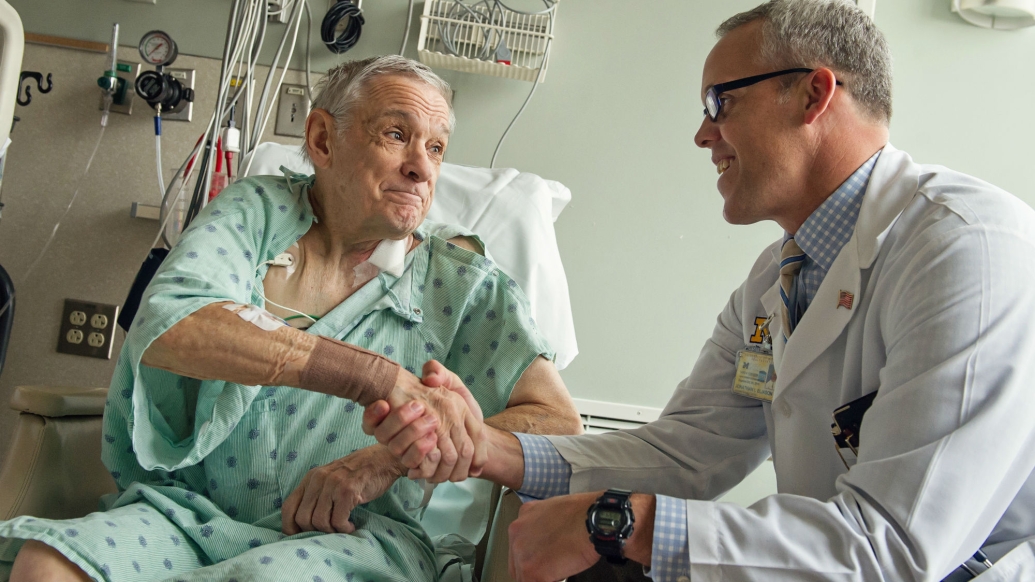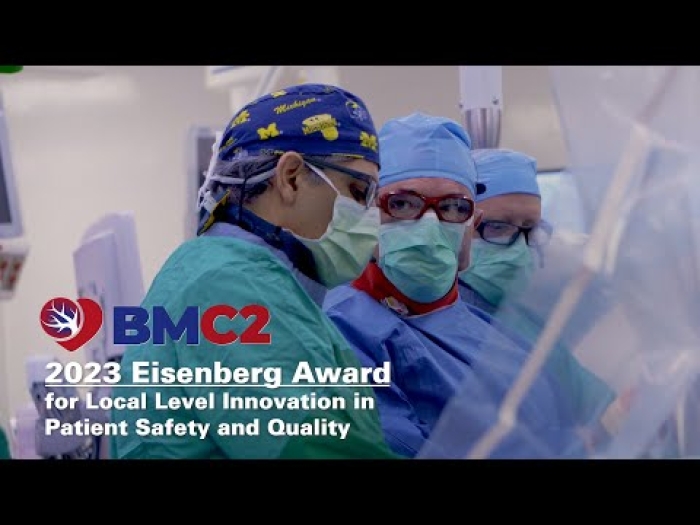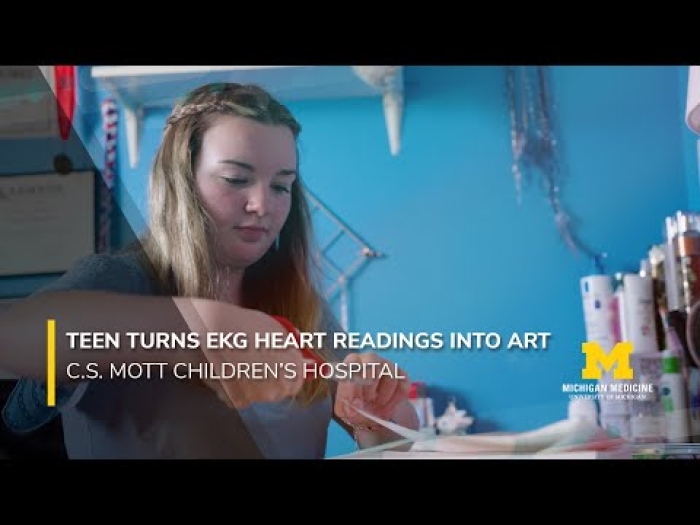A veteran and surgeon says deployment confirmed his commitment to serve others and always improve.
1:00 PM
Author |

He may not be in the Air Force anymore, but Jonathan Eliason, M.D., still carries what he learned there to the operating room and by the bedside of each patient he cares for.
The vascular surgeon at Michigan Medicine was deployed a decade ago to Iraq, at Balad Air Force Theater Hospital, in the highest level Air Force facility outside of the U.S. He treated anyone who came to the hospital, no matter who they were, while pushing forward new treatments and devices in the shelters the medical teams fashioned into operating rooms.
"We were in an austere environment taking care of severely injured patients, some of whom were your own injured military personnel, some of whom were civilians and innocent bystanders, and some of whom were on the opposite side of the military conflict," Eliason says.
He says this made him realize the true role of health care professionals, as he made difficult decisions about triaging patients based on medical need only.
"We took care of people who are sick or injured and hurting, regardless of their background," Eliason says. "After you clarify in your head what your role is as a helper, it becomes a lot easier. I think the greatest lesson I learned from being deployed was how to better show love and compassion to all."
A needed development
While deployed, Eliason also saw the effect of improved supplies and technology on the injuries coming into the military hospital.
This inspired him and fellow veteran and vascular surgeon Todd Rasmussen, M.D., to work to slow a preventable cause of death in injured active duty military personnel: hemorrhage.
"We saw bleeding internally after gunshot wounds and blast wounds from IEDs were causing people to die frequently," says Eliason, who was deployed from 2006 to 2007. To help, the two surgeons invented a catheter device called the ER-REBOA, which acts like a tourniquet to stop internal bleeding until further treatment is possible.
And while he's no longer involved in the same kind of trauma care at Michigan Medicine, Eliason says he's impressed and thankful to see hospitals across the U.S. incorporating that same balloon catheter to save trauma patients.
"It was an unanticipated blessing that this focused effort for military innovation would then benefit others of different ages and circumstances who were badly injured," Eliason says. "We always said, if one person could be saved by this technique it would be worth all of the research and effort."
More than 200 hospitals now use the ER-REBOA. Meanwhile, Eliason and Rasmussen, who is still active duty with the Air Force, continue to research their device to clarify the safest ways to use it.
This ongoing research underscores Eliason's commitment to provide compassion and great care to every single person he meets and the importance of collaboration between the civilian sector and the military.
"The University of Michigan has a remarkable working relationship with the Department of Defense, allowing us to move the needle in regards to innovation," Eliason says. "Without that partnership, we wouldn't make a fraction of the progress that we've achieved by working together."
The Department of Air Force and the University of Michigan hold the patent for the ER-REBOA. Eliason serves on the clinical advisory board for, and the University of Michigan hold an equity interest in, Prytime Medical Inc., the company that makes the catheter.

Explore a variety of healthcare news & stories by visiting the Health Lab home page for more articles.

Department of Communication at Michigan Medicine
Want top health & research news weekly? Sign up for Health Lab’s newsletters today!





